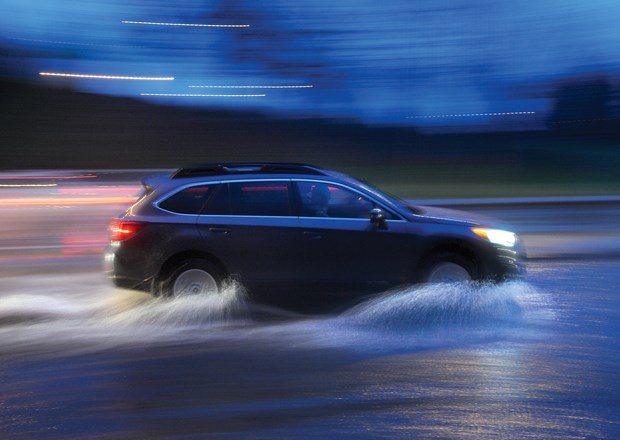It’s likely going to be a green Christmas again on the North Shore.
And that trend isn’t letting up anytime soon.
Chances of snow-filled winter wonderlands will be less than usual this winter, say meteorologists, as a strong El Nino will bring warmer than usual temperatures to the North Shore and the Greater Vancouver area between now and the end of February.
“It’s definitely a very strong El Nino,” said Lisa Coldwells, a meteorologist for Environment Canada.
El Nino is a pattern characterized by warmer than usual ocean water in the equatorial Pacific, which often brings with it warmer than usual winter temperatures for the west coast of Canada.
Typically in El Nino years, “you end up with temperatures one to two degrees above normal,” in the Lower Mainland, said Coldwells.
El Nino often means winter storms are pushed further north, which can result in marginally drier winters too, said Coldwells – though that isn’t always the case.
Precipitation that does fall is more likely to fall as rain than snow and fall as rain at higher elevations, said Coldwells. None of which is great news for local ski hills.
“It’s not the type of pattern that’s the best for skiers,” said Erin Wenckstern, a meteorologist with the Weather Network also predicting a strong El Nino winter.
This week, North Shore ski hills had most runs closed on Tuesday as rain and temperatures of between 5 and 7 degrees C made for less than ideal conditions.
That doesn’t mean the North Shore won’t still see some days of colder temperatures and Arctic air. But the long-term pattern is a warm one. Often the full effects of El Nino are also stronger in the later part of the winter, as was the case with the El Nino during the 2010 Winter Olympics.
El Nino usually means a lower snow pack in the mountains that feed the Lower Mainland’s water reservoirs as well.
Darrell Mussatto City of North Vancouver mayor and chairman of Metro Vancouver’s utilities committee, said that doesn’t mean there’s reason to panic. Most of the reservoirs’ supply comes from spring rainfall, not snowpack, he said.
Mussatto said Metro’s water planners are reviewing what can be done better in the future, following the experience of last year’s drought. Watering restrictions will start two weeks earlier in 2016 than they have in the past – in May – he said, and run two weeks later. Metro is also trying to coordinate various municipal governments’ approaches to water use so that what’s allowed or not allowed and fines for not following the rules are consistent.



